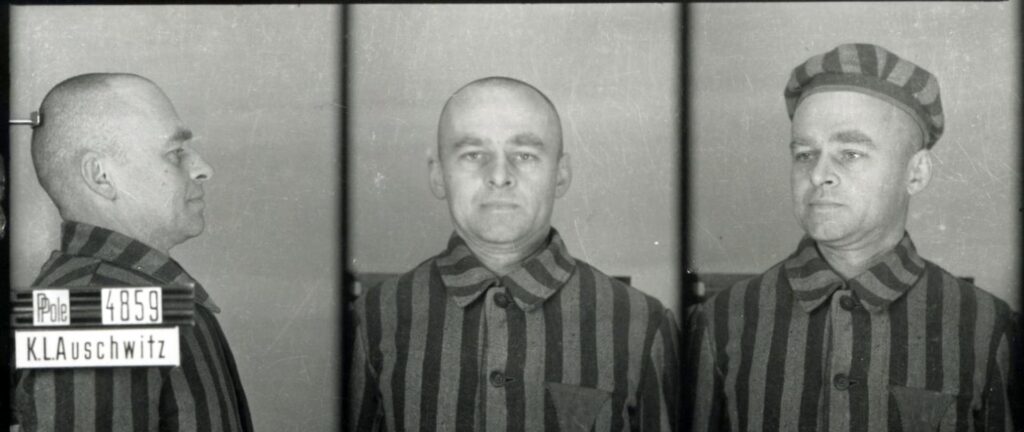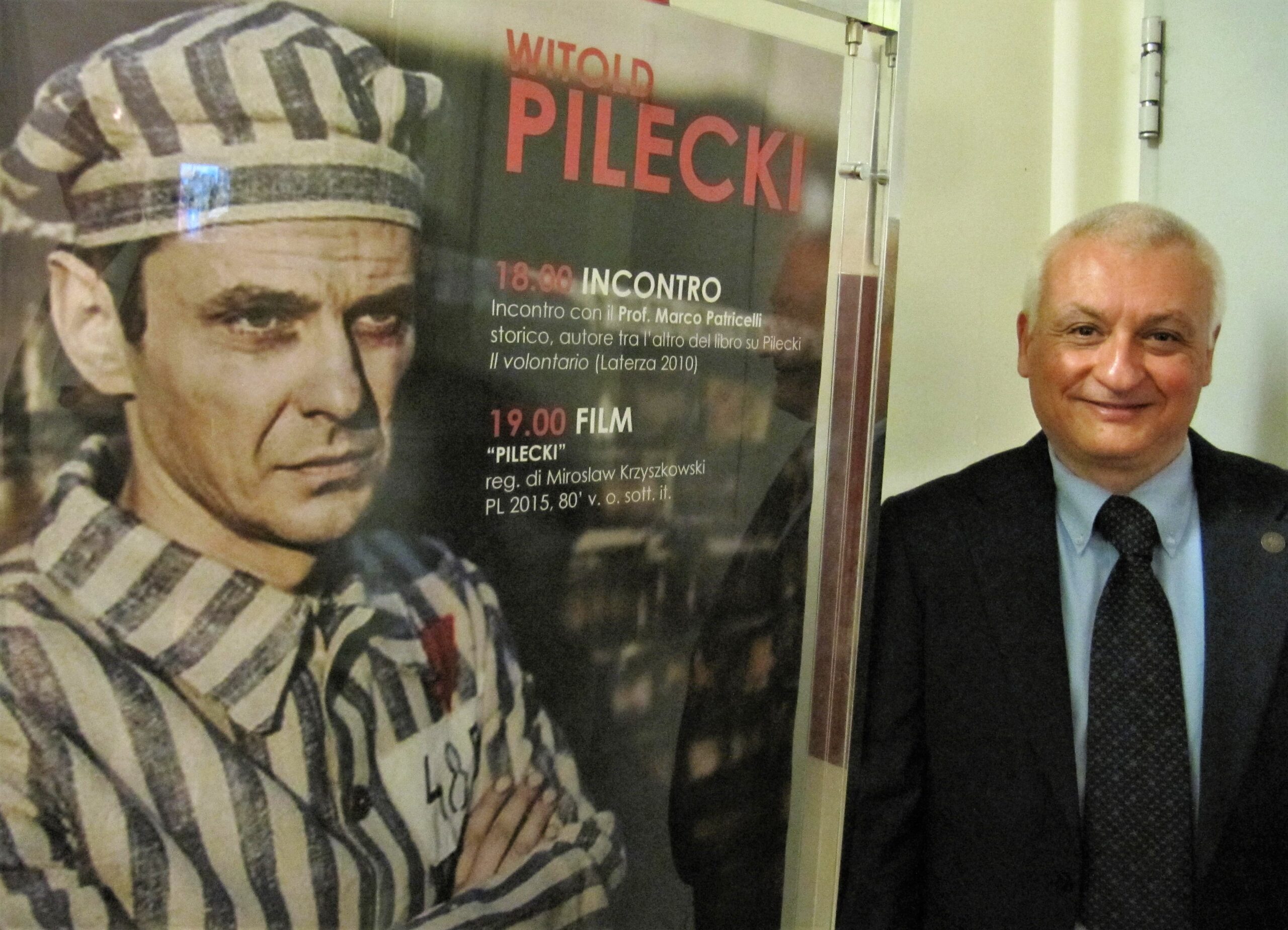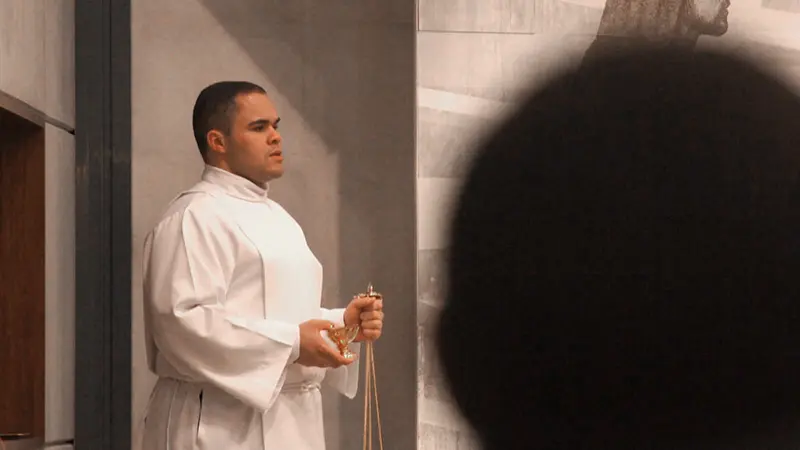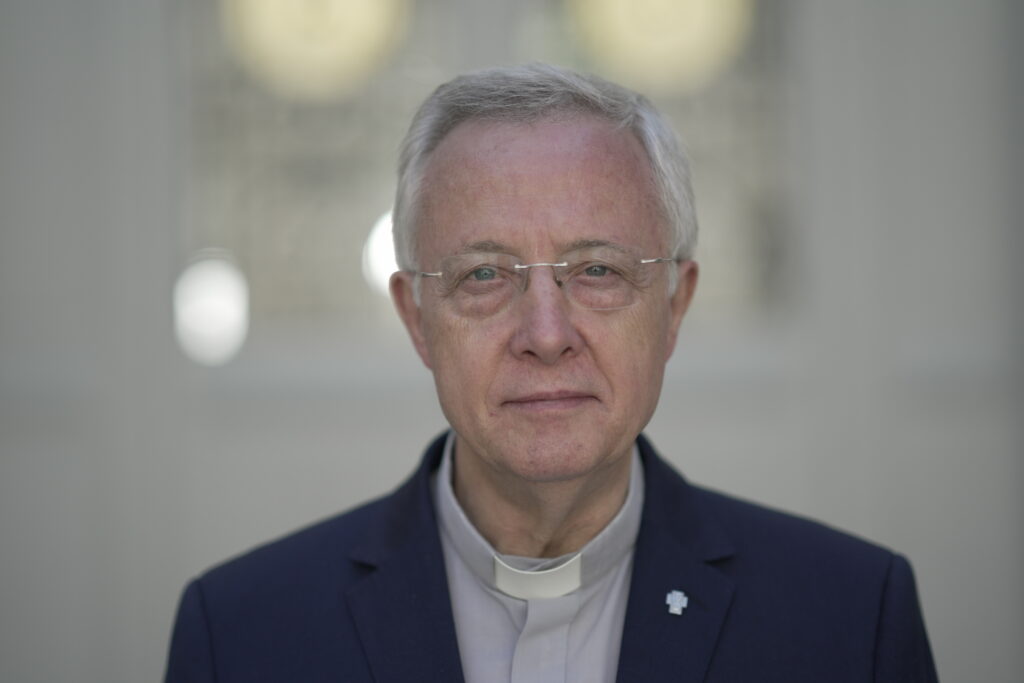The Memory Day: Remembering Witold Pilecki, the Hero of Auschwitz
Historian Marco Patricelli recalls “the volunteer” in the concentration camp

Witold Pilecki, prisoner number 4859, was a hero of Auschwitz. British historian Michael Foot considers Pilecki one of the six most courageous figures of the resistance movement during World War II.
On January 27, 1945, Soviet troops liberated the Auschwitz-Birkenau concentration camp. When it was decided to commemorate the extermination of Jews during World War II, this date was chosen for the Holocaust Memorial Day.
From 1933 to 1945, the German government built 20,000 of these camps (in German, Lager) across various European countries. The camps served different purposes: concentration camps, extermination camps, forced labor camps, etc. The victims of these camps amounted to about 11 million people, 6 million of whom were Jews. Auschwitz-Birkenau was the largest extermination camp, which is why its liberation date has such significant importance.
However, while remembering the victims of Auschwitz, it would be appropriate to also recall the heroes who, risking their lives, managed to gather information about what was happening inside the camp and transmit it to Western governments. Among these heroes, who remain unjustly unknown to the global public, are Witold Pilecki and Jan Karski.
To remember these two figures, I spoke with historian Marco Patricelli, who is also the author of the valuable book The Volunteer (Il Volontario, Edizioni Laterza).
You are the author of a book that introduced Witold Pilecki, an unknown hero of World War II, to the Italian public. Why did the life of this young Polish cavalry lieutenant, a devout Catholic and family man, intersect with the Auschwitz concentration camp?
Marco Patricelli, historian and author of The Volunteer, which recounts the extraordinary story of Witold Pilecki, shares:
“The experience of Witold Pilecki, one of the founders of the Polish resistance and the underground army during the German occupation, stems from an extraordinary intelligence plan he devised and volunteered for. The plan involved his arrest and deportation to Auschwitz. Horrifying rumors about Auschwitz were circulating, but they were only rumors. Pilecki’s goal was to create a resistance movement from within and to inform the free world about the atrocities committed by the Nazis.
In the part of Poland occupied by Hitler, a systematic and ruthless plan was underway to decapitate the Polish intellectual and leadership class through the concentration camp system, and to annihilate the Jewish population.”
What did Pilecki discover at Auschwitz?
He discovered that the reality was far worse than what little had filtered beyond the barbed wire. This was between September 1939 and September 1940, following Pilecki’s intentional arrest.
It must be noted that when a prisoner was released, they were subjected to treatments that hid the signs of starvation, beatings, and other horrors. They were also warned to remain silent or risk being sent back to Auschwitz, with the same fate befalling their families. The camp was a kingdom of horror, slavery, sadistic criminality, and the total negation of human dignity.
Pilecki observed and recorded everything, risking his life daily. His first report, sent through the Polish resistance, reached the Polish government-in-exile in London in March 1941, via Stockholm. It became the first official document about Auschwitz, detailing daily occurrences within the camp. The accounts seemed too horrific to believe, and indeed, many did not believe him.
Escaping from a concentration camp seems impossible. How did Pilecki manage it?
He took advantage of favorable circumstances, such as the Easter holidays, relaxed surveillance, and the opportunity to work at an external bakery. He meticulously planned every detail, successfully escaping on April 27, 1943, along with two companions, after nearly 1,000 days of imprisonment. By then, the SS Political Department was already tracking him, and his mission was deemed complete.

Where are the reports of the “Auschwitz volunteer”?
Pilecki’s reports, written during his time in the camp, after his escape, and during the post-war period in Italy, are all housed in London, in the archives of the Polish government-in-exile.
Speaking of Pilecki, we must also remember another Polish hero who shared testimonies of the genocide of Polish Jews with the West: Jan Karski. Could you tell us about him?
The figure of Karski is one of those rare and extraordinary examples of individuals willing to risk their lives to save humanity from the abyss into which it had fallen during those dark years. Karski brought his firsthand accounts and evidence of the Holocaust to the highest levels of government in Britain and the United States. But he was not believed, as his stories were so horrifying that they surpassed what was imaginable—and thus, comprehensible.
Did Western governments, especially the Americans and British, know about the genocide happening in Auschwitz? Why didn’t they intervene?
There are many reasons, primarily political and military rather than moral, although the latter seems predominant to us. Bombing the railways supplying Auschwitz was difficult and risky, and any damage caused was swiftly repaired by German engineers. Organizing a mass escape, as Pilecki persistently advocated, was impossible because there was no way to assist or protect detainees in occupied territories.
The Allies chose not to divert forces, resources, or energy from the war effort because they believed the extermination would end once the Reich was defeated.
Why are Poles sometimes accused of not preventing the operation of Nazi concentration camps in occupied Poland, while the West’s (perhaps deliberate?) inaction is ignored?
How could they have done more than they already did in such unimaginable circumstances? In Poland, unlike in other Nazi-occupied countries, those who helped Jews were executed, and their homes were burned down. Yet, Poles make up 25% of the over 28,000 Righteous Among the Nations, making them the largest national group.
The sabotage efforts and intelligence provided by the Polish Home Army (Armia Krajowa) were crucial to the Allies’ eventual victory, and the price Poland paid was monstrous. These are the facts; everything else is speculation and exploitation.
What happened to Pilecki after the war?
He once again volunteered to serve General Anders, who was in Italy. He returned to Poland, where his family lived, on a mission to create a resistance system similar to that in Auschwitz, aiming to prevent the complete Sovietization of Poland.
Having survived Nazi totalitarianism, he became a victim of Stalinism. He was arrested, falsely accused, tortured, and subjected to rigged trials. He was executed on May 25, 1948, in Warsaw, and his body was secretly buried so it would never be found. His story was buried in obscurity for decades.
Related

The Sistine Chapel’s Preparation for the Conclave
Exaudi Staff
06 May, 2025
6 min

We must continue praying for vocations
Fundación CARF
06 May, 2025
4 min

Father Tomaž Mavrič, of the Congregation of the Mission: “We are called to see the face of Jesus in the poorest”
Exaudi Staff
30 April, 2025
5 min

Thy will be done
Albert Cortina
17 April, 2025
35 min
 (EN)
(EN)
 (ES)
(ES)
 (IT)
(IT)

